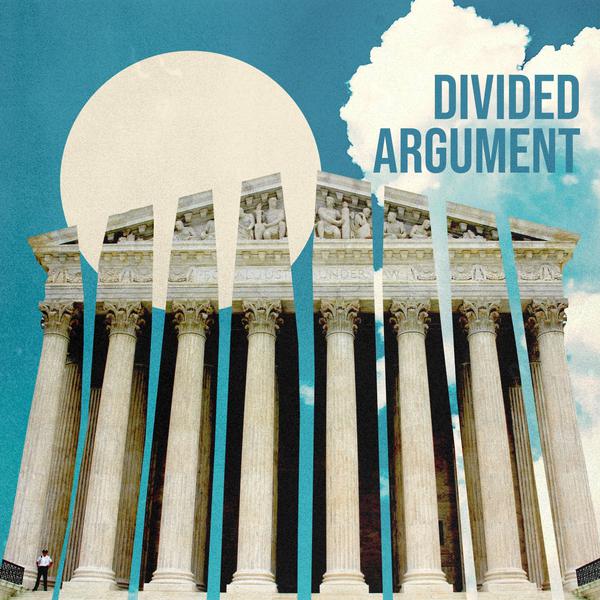
Divided Argument
Will Baude, Dan Epps
An unscheduled, unpredictable Supreme Court podcast. Hosted by Will Baude and Dan Epps.
- 1 hour 17 minutesNon-Cake Physical Object
We're back to break down a month's worth of shadow docket activity -- three recent summary reversals, plus the stay in the Texas gerrymandering case (Abbott v. LULAC). We also discuss the launch of the SCOTUSblog "interim docket blog."
19 December 2025, 11:00 am - 55 minutes 24 secondsCounter-Counter-Counter-Designations
Will and Dan record a rare live show in an unusual venue: the Salamander Resort in Middleburg, Virginia, at the annual attorney retreat for trial boutique Wilkinson Stekloff. Dan teaches Will some of the new lingo he's learned from the firm's trial experts before a deep dive into civil procedure. First, we dig into the recently argued Coney Island Auto Parts Unlimited v. Burton, which presents a seemingly easy legal question and harder questions about SCOTUS advocacy and ethics. Then we look back at last Term's LabCorp v. Davis, which the Court DIG'd but which raises some fundamental questions about class action litigation that the Court is likely to revisit down the road.
20 November 2025, 10:00 am - 1 hour 18 minutesProximity Mines in the Facility
After a predictably unpredictable set of detours through Latin grammar, parenting philosophies, and 90s video games, we catch up on the latest shadow (interim?) docket activity and recap the oral argument in the tariffs cases.
15 November 2025, 1:06 pm - 1 hour 3 minutesCrazy Half-Drunk Unreliable Research Assistant
Divided Argument is in its sixth season! Our first episode of the term focuses, of course, on the latest developments on the shadow docket. These include several grants of interim relief to the Trump administration, as well as some dissents from the denial of certiorari. But first, an update on Dan's travel schedule and ChatGPT usage, and an important correction to our previous episode.
31 October 2025, 9:45 am - 52 minutes 35 secondsProust or Plato
For the season finale, we're joined by Yale law professor Justin Driver to talk about his new book, "The Fall of Affirmative Action: Race, the Supreme Court, and the Future of Higher Education." We discuss the conservative cases for and against affirmative action, the post-SFFA world of university admissions, the promise and limits of colorblindness, and the effects of admissions policies on students' sense of belonging.
3 October 2025, 11:00 am - 1 hour 16 minutesByzantine Wall
We extend our record-breaking run with a discussion of the Court's two big recent emergency docket rulings: Noem v. Vasquez Perdomo and NIH v. American Public Health Association.
11 September 2025, 9:30 am - 1 hour 7 minutesBedrock Con Law 101
We're joined by Michigan law professor Richard Primus to talk about his new book, "The Oldest Constitutional Question: Enumerated and Federal Power." Richard describes one of the the most widespread beliefs about constitutional law -- that the federal government is one of limited, enumerated powers -- and why he thinks it is actually wrong. Along the way, we discuss methods of constitutional interpretation, the relationship between the official story of the law and legal practice, and wrestle with the surprisingly hard question of how many congressional powers are listed in the Constitution.
29 August 2025, 7:09 pm - 1 hour 26 minutesOriginalism Hulk
Continuing our long slog through the end-of-Term opinion dump, it's fraud day! We dig into Kousisis v. United States and Thompson v. United States, two interesting federal criminal law puzzles.
9 August 2025, 1:13 pm - 1 hour 30 minutesThe Country of the Future
We finally circle back to the two big structural constitutional law cases from the last day of the term. First is Kennedy v. Braidwood Management, which upheld the appointment structure of the U.S. Preventative Services Task Force under the Affordable Care Act. Then is FCC v. Consumers' Research, which upheld the universal-service contribution scheme against a pair of non-delegation challenges. Our second-longest episode of the season.
28 July 2025, 4:31 pm - 30 minutes 50 secondsThe Thunder Docket
Acting with unpredictable alacrity and unpredictable brevity, we break down the Supreme Court's recent interim order in Trump v. Boyle, and discuss what it means for the unitary executive, and for the shadow docket. We also debate the best name for the Court's emergency/interim orders docket.
25 July 2025, 5:25 pm - 1 hour 3 minutesSnake-Charmer-Specific
Moving with shockingly unpredictable efficiency, we respond to feedback, debate which of us is more composting-friendly, catch up on the emergency docket, and chip away at our end-of-Term backlog by digging into Diamond Alternative Energy v. EPA.
19 July 2025, 2:06 pm - More Episodes? Get the App